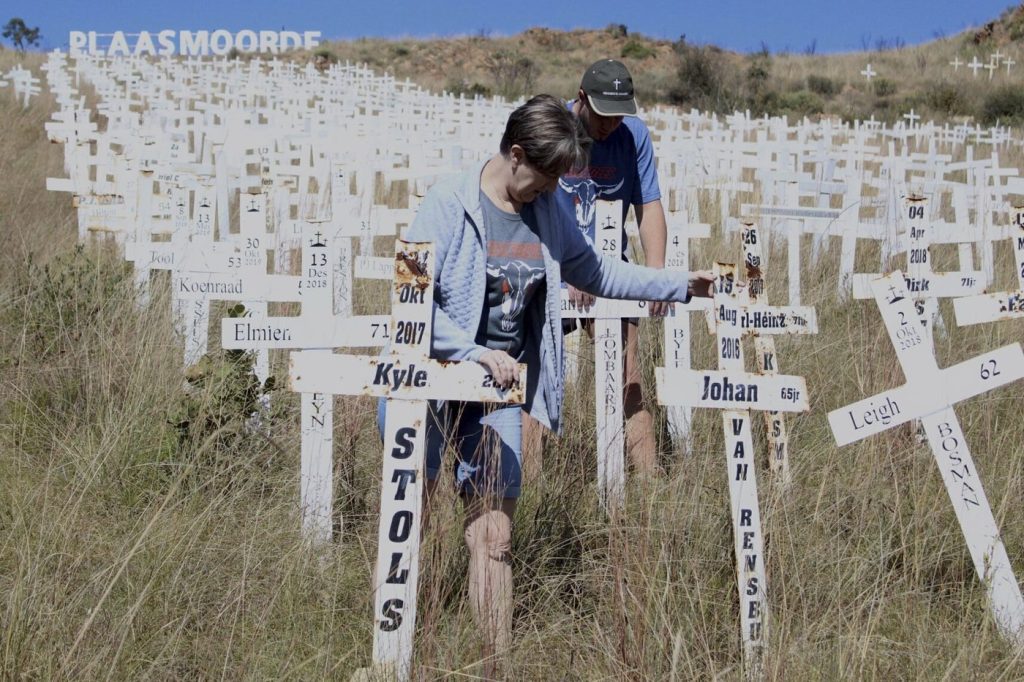MOKOPANE, South Africa (AP) — The Witkruis Monument, or White Cross Monument, features nearly 3,000 white crosses, each representing a white individual killed on South African farms over the past three decades. However, this monument only tells a partial story of the violence related to farm killings in South Africa.
The narrative surrounding the monument has gained traction with certain factions in South Africa and conservative commentators globally, including notable figures like Elon Musk and former U.S. President Donald Trump. Recently, Trump intensified his rhetoric, using terms like "genocide" to describe violence against white farmers. This characterization has been widely denounced by experts and the South African government, emphasizing that the issue is more complex than the narrative suggests.
In reality, the killings of farmers and farmworkers, irrespective of race, constitute a small fraction of South Africa's overall high crime rates. Available statistics indicate that these crimes, often stemming from armed robberies, do not fit neatly into a racially motivated framework. The conditions are further complicated by ownership demographics, where 72% of privately owned farms are held by white individuals, while only 4% are owned by Black South Africans.
Gareth Newman, a crime expert at the Institute for Security Studies in Pretoria, points out that the misinformation surrounding farm killings is fueled by the narratives of fringe right-wing groups, which have not held official power since the end of apartheid in 1994. These groups have clung to a debunked theory of persecution as a means of cohesion and fundraising.
The Witkruis Monument was initiated in 2004, and it recognizes victims of farm killings dating back to the end of apartheid. Each year, around 50 new crosses are added to memorialize slain white farmers and their family members. Kobus de Lange, a local farmer serving as the monument's caretaker, expressed both the fear and frustration of the white farming community but also acknowledged the broader context of farm violence. He admitted that Black farmers and farmworkers also face attacks, although the monument solely represents white victims due to a lack of requests from Black communities for similar recognition.
According to AfriForum, a white Afrikaner lobby group, there were 49 reported farm killings and 296 farm robberies in South Africa from April 2023 to March 2024. These incidents represented approximately 0.2% and 0.7% of the country's total murder and robbery statistics, respectively. The group's figures do not account for the killings of Black farmers and laborers, and official crime statistics are not race-specific. In contrast, Black South Africans, who make up over 80% of the population, comprise most victims of violent crime. Nonetheless, there is no significant movement to raise awareness about the violence faced by Black farmers.
In an effort to combat spreading misinformation, South African police released a racial breakdown of farm killings recently, showing that from January to March of the current year, six murders occurred on farms, of which only one victim was white. MmaNtuli Buthelezi, a Black farm resident, argued that the claims of targeted violence against whites do not hold true, emphasizing the vulnerability of Black farmworkers and their lack of access to personal weapons for defense.
Historical research reinforces the prevailing view that robbery is the primary motive behind farm killings. The South African government conducted investigations in 2003 and found that such crimes often stemmed from criminal groups targeting farm owners, perceived as vulnerable due to their ownership of valuable items like vehicles and technology.
Overall, the narrative surrounding farm killings in South Africa is deeply nuanced, involving complex social, economic, and historical factors, significantly distinct from some of the misleading portrayals presented in political and media discourse.











